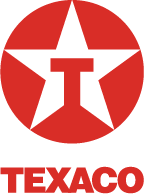
Whether it is an off-highway diesel engine or a gas-powered combined heat and power (CHP) system, lowering carbon intensity while enhancing efficiency is a priority for operators.
In 2024, Texaco Lubricants and GlobalData hosted two webinars on emission reduction in off-highway fleets and the influence of engine fluids on CHP operations. In both webinars, the experts from Texaco and GlobaData discussed the growing influence of lubricants in tackling these operational challenges.

With diesel particulate filters (DPFs) necessary to help meet stringent emission standards in off-highway equipment, proactive maintenance of DPFs has become essential. Managing DPF efficiency remains complex, however, largely because of high ash accumulation. This predominantly builds up from lubricant additives, potentially leading to increased fuel consumption and maintenance demands. Texaco’s European OEM Manager, Eddy Devriese, discussed this scenario during the first webinar, noting that when DPFs are clogged with ash, fuel consumption can spike by up to five per cent, placing a significant burden on operational budgets.
To combat this, off-highway operators can incorporate the use of premium performance ultra-low ash long-drain engine oils into their equipment’s maintenance schedules. This was reinforced by Devriese, who referred attendees to a series of case studies, which demonstrated the tangible benefits of using advanced formulation lubricants. One fleet observed a 61 per cent reduction in its DPF regeneration after switching to a low-ash oil – leading to significant cost savings – while another business reported reduced fuel use and longer equipment life.
Devriese advised operators that Texaco Delo 600 ADF engine oil has been formulated to help deliver protection to both the engine and emission systems across mixed fleets, lengthening DPF life by reducing clogging and extending oil drain intervals. According to Devriese, the product is able to help reduce DPF-related costs by up to 60 per cent.
Long-term reliability
In the second webinar, Texaco’s Business Development Specialist, Michael Gülck, led a discussion on the significant role of lubricants in a CHP setting. Gas engines in CHP plants have to deal with high mechanical loads and varied operating conditions, often with long intervals between maintenance. For operators looking to maximise the productivity of their equipment, it is crucial that the lubricants used on these engines are designed to combat these conditions.
Gülck stressed that using the correct lubricant can improve mechanical efficiency, help prevent component wear, and extend oil change intervals, and gave webinar attendees an insight into the Texaco HDAX range of advanced technology gas engine lubricants. The range, which helps to deliver optimised equipment protection and performance thereby assisting operational reliability and output productivity, contains products specifically designed for CHP applications.

The webinar ended with an overview of the latest coolant technologies introduced in CHP plants to tackle overheating and deposits in exhaust heat exchangers. Gülck and the other experts on the panel assured operators that these coolants can help to ensure long-term reliability for their systems, as can oil analysis systems, such as Texaco’s LubeWatch Oil Analysis Programme. LubeWatch helps operators monitor the condition of their lubricants and identify issues before they escalate, optimising performance while reducing downtime and maintenance costs.
For more information on Texaco Lubricants’ range of products and services, visit https://www.texacolubricants.com


